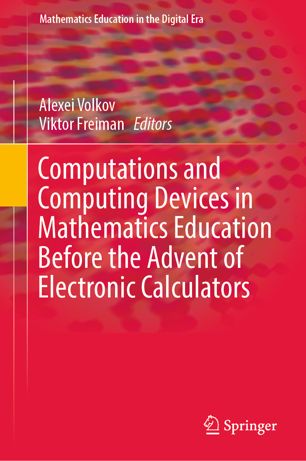

Most ebook files are in PDF format, so you can easily read them using various software such as Foxit Reader or directly on the Google Chrome browser.
Some ebook files are released by publishers in other formats such as .awz, .mobi, .epub, .fb2, etc. You may need to install specific software to read these formats on mobile/PC, such as Calibre.
Please read the tutorial at this link: https://ebookbell.com/faq
We offer FREE conversion to the popular formats you request; however, this may take some time. Therefore, right after payment, please email us, and we will try to provide the service as quickly as possible.
For some exceptional file formats or broken links (if any), please refrain from opening any disputes. Instead, email us first, and we will try to assist within a maximum of 6 hours.
EbookBell Team

5.0
50 reviewsThis volume traces back the history of interaction between the “computational” or “algorithmic” aspects of elementary mathematics and mathematics education throughout ages. More specifically, the examples of mathematical practices analyzed by the historians of mathematics and mathematics education who authored the chapters in the present collection show that the development (and, in some cases, decline) of counting devices and related computational practices needs to be considered within a particular context to which they arguably belonged, namely, the context of mathematics instruction; in their contributions the authors also explore the role that the instruments played in formation of didactical approaches in various mathematical traditions, stretching from Ancient Mesopotamia to the 20th century Europe and North America.